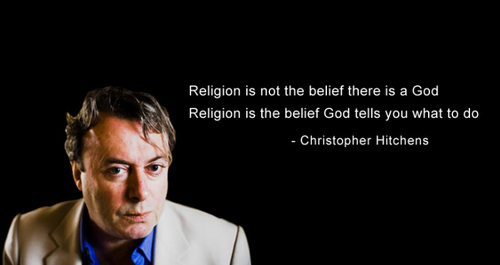No Backtracking, Even in the Trenches
Mortality
by
Christopher Hitchens
Death has this much to be said for it:
You don’t have to get out of bed for it.
Wherever you happen to be
They bring it to you—free.
—Kingsley Amis
Have you ever been amused when people who have been viewing an opened casket comment on how well the corpse looks? Well, I think that Christopher Hitchens would appreciate the irony of the cover on this book. There he is, in a pose that is like one of those old oil paintings of a famous statesman. He is undoubtedly dying; and he has rarely looked better.
As Christopher Hitchens’s posthumous swan song it seems to me to be somehow strangely fitting that Mortality is spare and lean in so many ways.
It is a spare volume, clocking in at a slim 100 pages; and the seven articles reprinted here from Vanity Fair (the magazine that Hitchens had written for from 1992 until his death in December 2011) are spare and less verbose than he could sometimes be. Of course, there is nothing spare or lean about Hitchens’ passion for continued life and a good debate into the bargain; but—well, inevitably given the subject matter and the fact that we know there was no last-minute miracle cure—there is a definite feeling of winding down throughout. This is of course considerably added to by the Publisher’s decision—quite a hard one, I would imagine—to include as an eighth chapter the author’s fragmentary and occasionally disjointed jottings. For what it’s worth, I think that it was the right decision. I’m glad that we got every last word.
Not everyone would agree, of course; but then not everyone admired Hitchens to the extent that many of us did. In fact, there was a lot who downright couldn’t stand him. My own admiration was huge, although I must confess that in recent years I have found myself tiring to an extent with the perpetual atheistic focus of writers such as himself and his fellow travelers such as Richard Dawkins. In its own way it has become as vehement and—dare I say it?—evangelical as some of those extreme religious nuts that they have done such a good job of lambasting.
Mind you, I could forgive Hitchens anything after his brilliant debunking of the whole ‘saint’ myth of that ghastly old fraud, Mother Teresa in his book The Missionary Position.
Schadenfreude
It was attitudes like that which had some of his more extreme Christian opponents finding themselves with—according to gender– either an erection or wet between the legs upon hearing that Christopher had been diagnosed with oesophageal cancer during his 2010 book tour for his autobiography Hitch-22. As has often been noted on this blog, an awful lot of Christians tend to not be very Christian.
He received a great many twisted postings on the internet, that most useful and yet dubious of tools, and here he quotes one:
‘Who else feels Christopher Hitchens getting terminal throat cancer [sic] was God’s revenge for him using his voice to blaspheme him? Atheists like to ignore FACTS. They like to act like everything is a “coincidence”. Really? It’s just a “coincidence” that out of any part of his body, Christopher Hitchens got cancer in the one part of his body that he used for blasphemy? Yeah, keep believing that, Atheists. He’s going to writhe in agony and pain and wither away to nothing and then die a horrible agonizing death, and THEN comes the real fun, when he’s sent to HELLFIRE forever to be tortured and set afire.’
Yup. Christians, you gotta love them; gimme that Old Time Religion.
One piece of arrant nonsense that I’ve never fully understood is put to sleep by him in Chapter 6, where he discusses that hoary old quote, usually attributed to Nietzsche: “That which does not kill me, makes me stronger.”
OK, now in fairness it is probably taken out of context, but I do find that—to keep Christopher’s terminology—on my own forays ‘across the border of the well’ and on occasion deep into the country of the very sick, this quote annoyed me in the extreme. In fact, I found it absolute rubbish. Hitchens:
“…once or twice, walking away from a car wreck or a close encounter with mayhem while doing foreign reporting, I have experienced a rather fatuous feeling of having been toughened by the encounter. But really, that’s to say no more than “There but for the grace of god, go I,” which in turn is to say no more than “The grace of god has happily embraced me and skipped that unfortunate other man.”
It is with admirable and precise fortitude and lack of self-pity that Christopher Hitchens—self-confessed heavy drinker and smoker—chronicles the breakdown of his body. I was reminded of that other great atheist, Howard Philips Lovecraft, dying of cancer some seventy-odd years earlier and feeling the need to have his demise recorded with detachment for the benefit of some future medical practitioners; although undoubtedly in the case of Hitchens he just couldn’t stop writing even as the end was in touching distance.
Mortality is bookended by pieces from his friend Graydon Carter and his wife Carol Blue, who leave the reader in no doubt that it is to his or her loss that he never got to meet, argue or have a drink with him.
The great debater, lifelong atheist, columnist and literary critic exited stage left at the ridiculously young age of 62. And in a world where Tony Blair is still alive, that alone is enough to make anyone doubt the existence of God.


Recent Comments